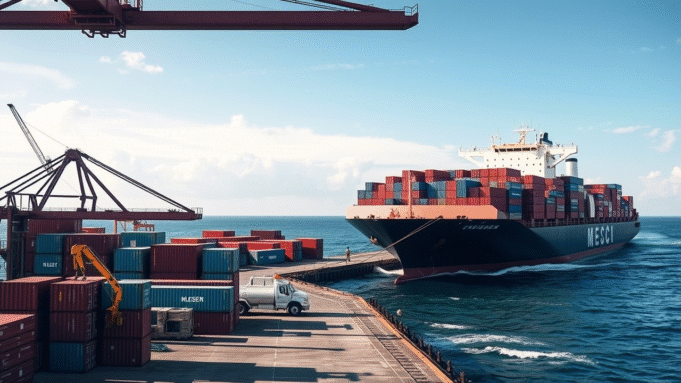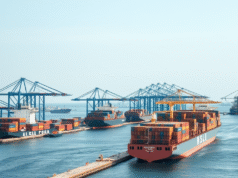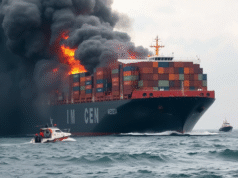Container Bookings Drop by Over 60%
Since the new tariffs began on April 9, shipments from China to the US have dropped sharply. Ryan Peterson, CEO of Flexport, said bookings have fallen more than 60% in just three weeks. The new tariff rate is now 145% for Chinese imports, compared to 10% from other places.
This move is expected to seriously affect shipping to US ports. Experts believe the West Coast will feel the hit in May, and the East and Gulf Coasts will see delays by June.
Shipping analyst John McCown explained that China madeup about 40% of US-bound containers in March. The steep decline in shipments means US ports will soon be handling far less cargo than usual
US Tariffs Add More Pressure
Adding to the problem, the US Trade Representative (USTR) plans to introduce new ship-related fees in October. These fees will apply to Chinese carriers or vessels made in China.
McCown said the shipping industry is now facing some of the toughest conditions it has ever seen. He compared it to the peak of the pandemic.
Carriers are already reacting. In April alone, they cancelled 81 scheduled sailings between Asia and the US—far more than the 51 cancelled during the height of COVID-19.
Shipping Alternatives and Retail Impact
Shipping giant Hapag-Lloyd shared that about 30% of Chinese shipments to the US have now been cancelled. As a result, demand is rising for routes from countries like Vietnam, Cambodia, and Thailand.
The National Retail Federation (NRF) has responded by slashing its import forecasts. After nearly two years of steady growth, imports are now expected to fall sharply. May volumes could drop by 20.5%, and June may fall even further by 26.6%. For the first half of 2025, total US imports could fall by 2.9%.
Full-year 2025 projections are even worse, with a possible 15% decline—wiping out much of 2024’s gains.
Fears of Shortages and Price Hikes
Ryan Peterson believes, this could lead to big problems for stores and customers. He pointed out that the US buys $600 billion worth of goods from China each year, and 95% of that comes by ship. If freight drops, retail shelves might go empty.
Craig Fuller, CEO of FreightWaves, added that many businesses might be caught off guard. He warned that essential goods for the back-to-school season are already being delayed. He said product shortages may begin to appear by August.
Peterson also warned about a “bullwhip effect” if tariffs are suddenly reduced. Carriers are now redirecting ships to other routes and canceling many trips from China. If demand suddenly rises again, the industry may not be ready, leading to price spikes like those seen in 2021.
Air freight might also be affected. Peterson said even a small shift from sea to air could send air cargo prices above $10 per kilo again, just like during COVID.
Industry Calls for Quick Action
Fuller summed it up by saying the economy is in trouble—like having COVID again, but this time with no financial help. He said the only way out is to reduce the tariffs.
McCown noted that shipping works best with stability. Disruptions like these, he said, make things slower, more costly, and uncertain. He’s unsure how long the chaos will last—or what it will cost.
While former President Trump has suggested possible tariff cuts in the future, many in the industry are urging faster decisions to stop more damage.
As Fuller put it, “There’s still time to avoid a crisis, but the clock is running out.”








